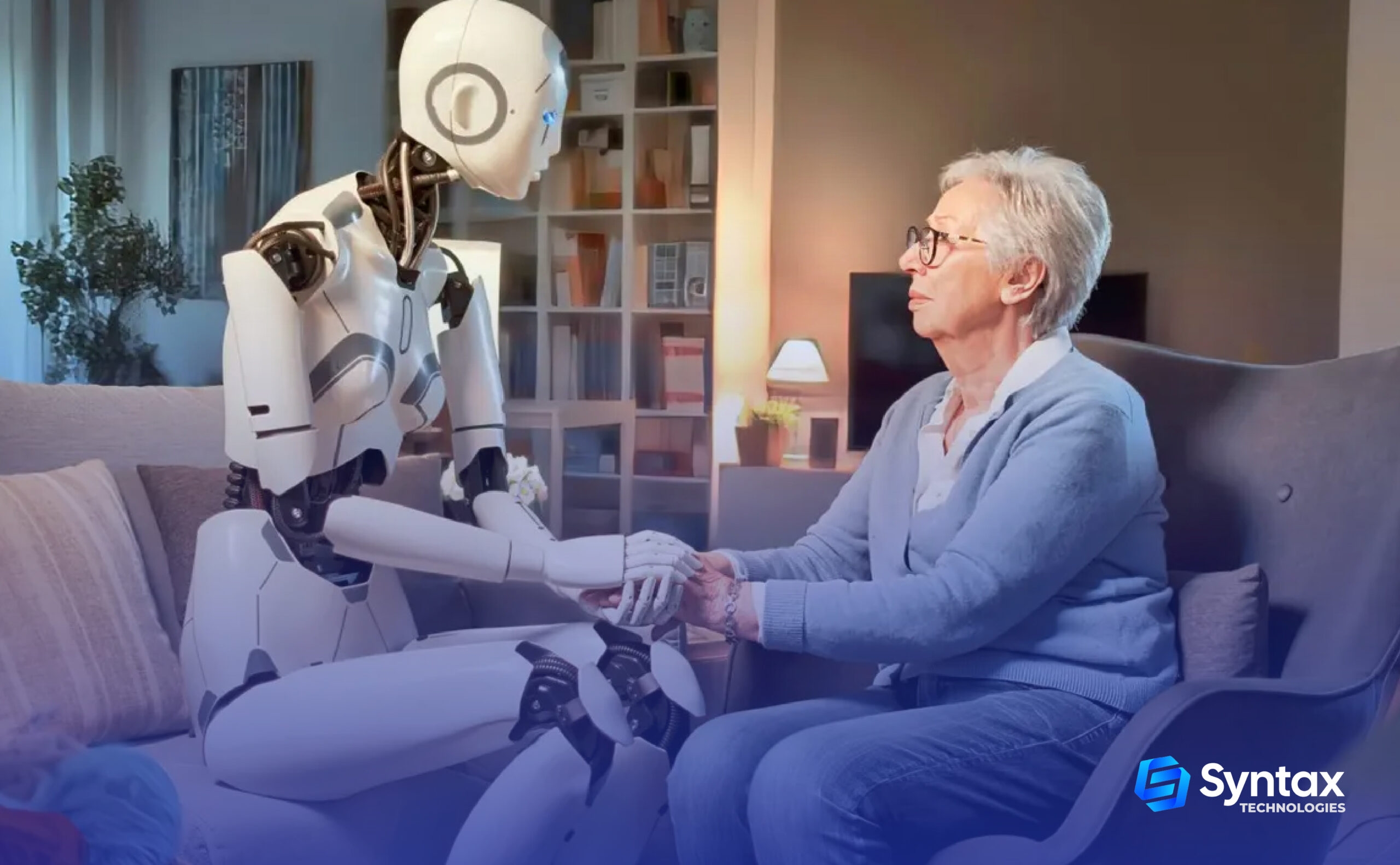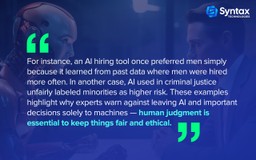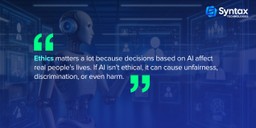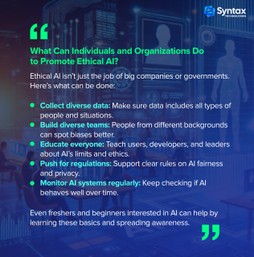Every day, we hear stories about how Artificial Intelligence (AI) is making life easier — from helping us shop online to suggesting what song to play next. But AI is no longer just about small conveniences. It’s now stepping into big, serious roles, like deciding who gets a loan, how patients are treated, or even influencing court rulings. This raises an important question: Can we really trust AI with important decisions?
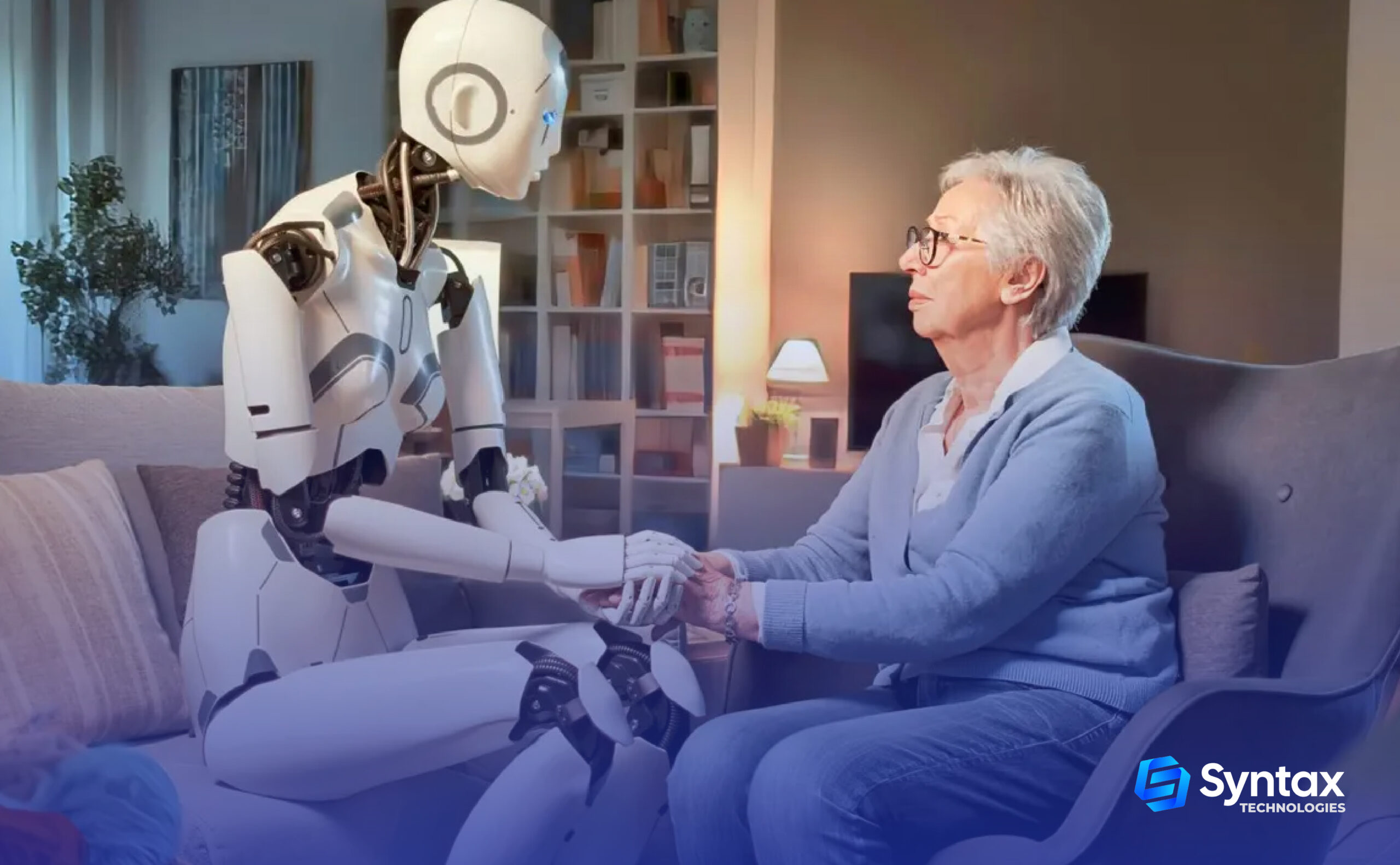
In this blog, we’ll break down what it means when AI makes decisions that affect our lives, explore the ethics behind it, and look at how companies are working to keep AI fair and unbiased. Understanding this is key if we want to rely on AI responsibly in the future.
The Rising Role of AI in Important Decisions
AI isn’t just about fun stuff like music or movies. It’s now being relied on for some really important things:
- Healthcare: AI helps doctors diagnose diseases faster by analyzing medical images or predicting who might get sick. It’s also used to personalize treatment plans based on patient data.
- Finance: Banks use AI to decide who gets a loan or credit card by assessing risk more quickly and accurately than traditional methods.
- Hiring: Some companies use AI tools to screen resumes or predict who will perform well in a job, aiming to reduce human bias.
- Criminal Justice: AI can even help predict if someone might commit a crime again, influencing bail and sentencing decisions.
- Education: AI-powered platforms assess student performance and recommend personalized learning paths.
- Insurance: AI helps calculate premiums by analyzing driving behavior or health data.
- Marketing: AI predicts customer preferences to target advertisements more effectively.
- Transportation: Self-driving cars use AI to make real-time driving decisions that impact safety.
- Government Services: AI chatbots and systems help manage social welfare applications and detect fraud.
These are all examples where AI and important decisions meet. The idea is that AI can look at tons of data, much faster than any human could, to suggest or make decisions based on patterns it finds.
To What Extent Can We Rely on AI for Important Decisions?
AI can do amazing things, but it’s not perfect. Here’s what you need to know:
- AI is great at finding patterns in data but it doesn’t “understand” things the way humans do. It works based on correlations, not true comprehension.
- Sometimes AI gets things wrong, especially when the data it learned from is not complete, biased, or contains errors. Garbage in, garbage out still applies.
- Blindly trusting AI without human checks can lead to bad results. AI might miss context that a human would notice.
- AI models can struggle with unusual or new situations that don’t resemble their training data, leading to unreliable decisions.
- There are privacy and security risks if AI decisions rely on sensitive or personal data that is mishandled.
- Ethical dilemmas arise when AI decisions impact people’s lives—who is responsible if something goes wrong?
Ethics of AI in Data: What Does It Mean?
When we talk about ethics and AI, we’re basically asking: Is the AI doing the right thing?
Some important ethical principles are:
- Fairness: AI should treat everyone equally and not favor one group over another.
- Transparency: People should know how AI makes decisions.
- Accountability: Someone must be responsible if AI causes harm.
- Privacy: Personal data should be handled carefully.
Sources of Bias in AI Systems
One of the biggest problems with AI is bias. Here’s how bias creeps in:
- Data bias: AI learns from data. If the data has errors or reflects unfair practices (like hiring mostly men), AI will learn those biases too.
- Algorithmic bias: Sometimes, the way the AI is programmed or designed can unintentionally favor certain groups.
- Feedback loops: AI decisions can reinforce biases over time. For example, if AI keeps favoring a certain group, that group’s data grows more, making AI even more biased.
Because of bias, AI might make unfair or harmful decisions, especially for minorities or less represented groups.
How Companies Are Working to Keep AI Fair and Unbiased
Many companies are aware of these challenges and are working hard to keep AI fair. Some ways they do this are:
- Fairness-aware Machine Learning: Special techniques help AI identify and reduce bias during training.
- Data Auditing: Checking the data carefully to remove errors and make it more balanced.
- Transparency Initiatives: Using tools that explain AI’s decisions in simple terms (called “explainable AI”).
- Accountability Frameworks: Setting up teams or boards responsible for AI ethics.
- Third-Party Audits: Getting independent experts to check AI systems.
- Bias Testing: Running AI through tests to spot hidden biases before deployment.
- User Feedback Loops: Collecting real-world feedback to continuously improve AI fairness.
- Open Source Collaboration: Sharing AI models publicly for transparency and community review.
For example, companies like Microsoft and IBM have published AI ethics guidelines and tools to help developers build fair AI systems.
Conclusion
So, can we trust AI with important decisions? The answer is: sometimes, but not blindly. AI has huge potential to help us make faster, smarter decisions, but it also brings risks like bias and unfairness. That’s why understanding the ethics of AI in data is crucial.
Companies are working hard to make AI fair and unbiased, but it takes constant care, transparency, and human involvement. For anyone new to AI or data, knowing these basics is a great starting point to understand why trust in AI isn’t automatic — it has to be built carefully.
